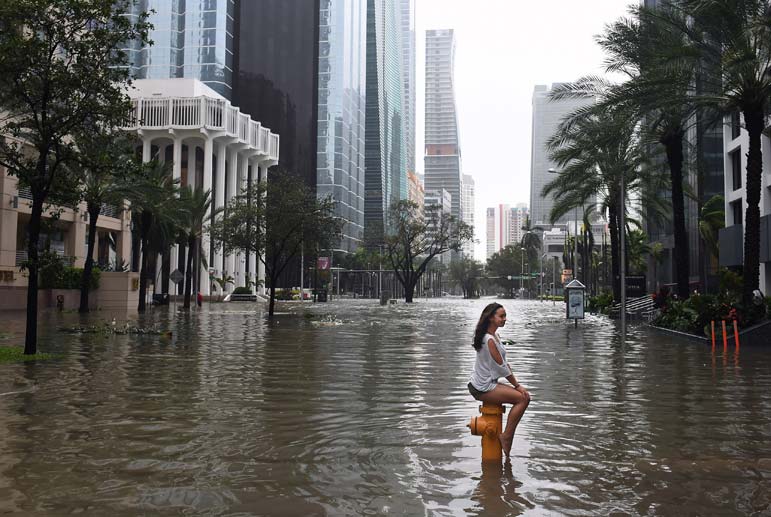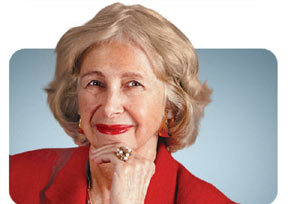 Matt McClain for The Washington Post
Matt McClain for The Washington Post
WASHINGTON -- It was all so very brave, the way Houstonians and other Texans faced the storm of a lifetime. Their actions seemed to turn on its head everything we had been fearing about the decaying American character.
Increasingly, we have feared selfish behavior dominating our lives; so much pettishness between people, and especially between groups and religions, that we could never come together again; and rich people so rich and poor people so poor that, somewhere along the line, a new civil war was brewing.
And then, there they were: a jet skier pulling horses to safety through 130 mph winds; the self-described "Cajun Navy" -- the selfsame "sailors" who "fought" in Katrina, thank you, ma'am! -- rushing from Louisiana to help; self-styled "command centers" spontaneously set up by volunteers in their homes, employing social media to spot where people were in most danger.
There were the white first responders carrying old black women out of flooded houses, black volunteers helping white women rescue their dogs, policemen carrying the undocumented, and not only churches and synagogues open for the "business" of saving lives during Mother Nature's temper tantrum, but also Islamic mosques open for everyone -- for they were in America now.
The wondrous pictures of the response to Hurricane Harvey reminded me of when I was a child and, as family friends told me in later years, my father had given free milk from our dairy on the South Side of Chicago to neighbors during the Depression. It makes me proud even today.
And I'll bet there are many youngsters in those south Texas cities who will grow up with a special pride in their fathers and mothers and what they did in the summer of 2017.
Of course, we should remember that this kind of kindness to one's neighbors -- this kind of sacrifice -- is nothing new in America. It arrived with the first settlers in New England who soberly signed agreements with their co-religionists to govern and care for the society. It morphed into barn-raisings in the agricultural north and west, where farmers joined together to build barns for one another. This concern for "the other" is akin to care for "the brother" webbed throughout America's soul.
But now, when the streets of Houston and Beaumont and Corpus Christi have only just begun to dry, and as gratifying as were citizens' actions during Harvey, it behooves us to move on to the next stage. We need to build on Texas and begin planning better for the future -- on a personal level, on a family level, on a civic level, and on national and international levels, as well.
Scientists had been warning for years that Houston had replaced prairie with pavement and concrete, leaving less and less land capable of absorbing floodwater. The problems were hardly hidden.
Newspapers like The Washington Post quickly reported that Houston's stormwater system "simply cannot handle the volume of rainwater dumped on the city by Harvey." And it went on: "Failure of a stormwater system is critical, as it immediately and adversely threatens the health, safety and property of citizens using and depending on the system."
But Houston, now the nation's fourth-largest city, has been proud of its reputation for "diversity," for maddening traffic jams and even for its promiscuous wildcat development. There is virtually no zoning. The city has become the Wild West reborn -- housing subdivision piled upon subdivision, all built on clay soils, right up to the network of 1,500 channels or bayous stretching over 2,500 miles, which were supposed to protect people, but didn't.
A ProPublica and Texas Tribune investigation found that the overseers of Houston's flooding issues pooh-poohed critics, dismissing scientists' warnings as "anti-development." Then you place on top of this the fact that almost no one in Texas had flood insurance (which is only available through the government and provides for very little), and you have a situation straight from hell.
A few people, mostly on the East Coast, spoke out on climate change. Was the Texas disaster due to this? It surely made things worse.
But right now, we need to think of practical planning. Wise use of space, great care for water resources (which are disappearing at a dangerous rate), the need for family planning before the Earth's population outstrips the planet's ability to support it -- we must soberly study all the practical, commonsensical, ethical and moral considerations our wisest people have been urging upon us for years.
Our Founding Fathers, especially Thomas Jefferson, spoke of preparing a polity that would last for a thousand years. It's surely time to begin working toward their goal.
Georgie Anne Geyer has been a foreign correspondent and commentator on international affairs for more than 40 years.
• 01/06/17: Global migration threatens a global disaster
• 11/03/16: Amusing us to ... exactly what?
• 08/29/16: Liars' club
• 11/04/15: Europeans' good intentions are overwhelmed by immigration. Will America?
• 10/01/15: The 'I' word
• 09/09/15: Generosity has its downside
• 07/15/15: Thank you, Donald Trump
• 07/01/15: Immigrant crisis tests Europe's Union
• 05/27/15: Why Iraq will continue to fall --- no matter what the West does
• 05/06/15: For Europe, generosity to turn into nightmare?
• 04/29/15: Both sides must work to end our season of killing
• 04/01/15: Our next president should be a homebody
• 03/04/15: Japan's sun poised to rise on world stage
• 01/21/15: Rumors of a new Cold War have real roots in history
• 01/21/15: It's time to be practical about multiculturalism
• 01/07/15: Tension mounts against Muslim immigration in the West


 Contact The Editor
Contact The Editor
 Articles By This Author
Articles By This Author